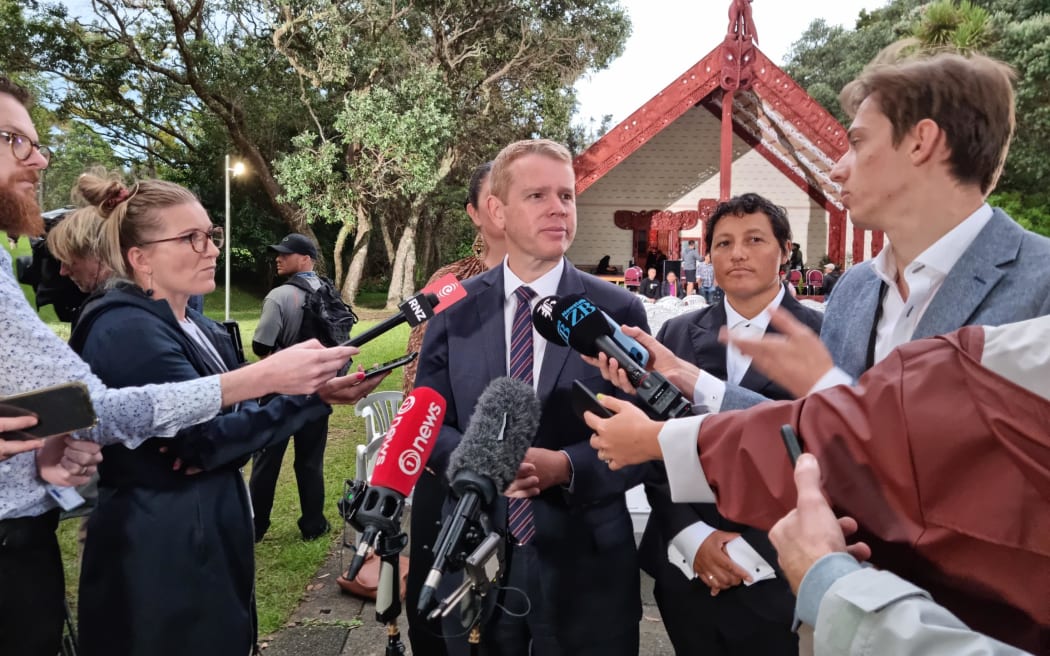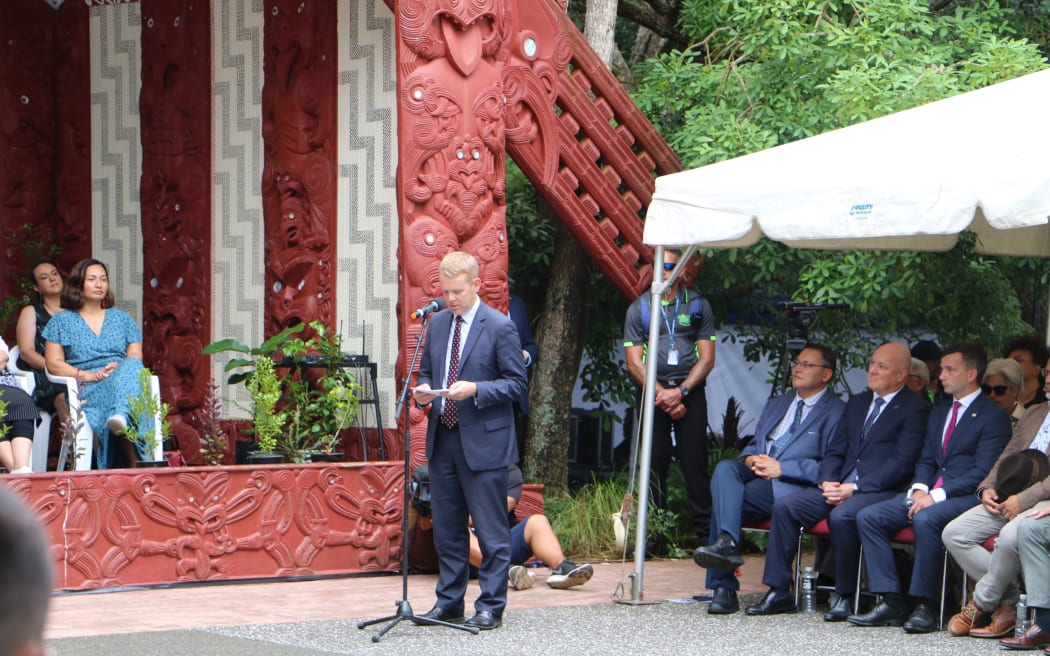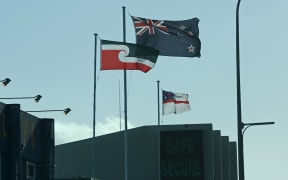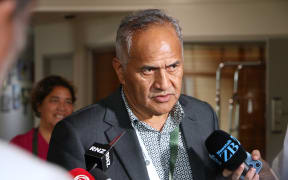
Chris Hipkins at Waitangi. Photo: RNZ/Jane Patterson
Prime Minister Chris Hipkins is dismissing calls for a South African- or Canadian-style 'truth and reconciliation' commission, saying that mechanism already exists through the Treaty settlement process.
He's also questioning the Human Rights Commission's (HRC) recent urging of the government to "commit to constitutional transformation and co-governance with tangata whenua", though admits he is yet to give the matter his full consideration.
Last week, the HRC published two reports, Ki te whaiao, ki te ao Mārama and Maranga Mai!, which looked at the effects of more than 180 years of colonisation and racism in Aotearoa and how to rectify mistakes of the past.
The latter recommended:
- discarding old interpretations of international law which gave the Crown the right to rule over New Zealand, and committing "to constitutional transformation (for government with tino rangatiratanga partners)" - in other words co-governance, recognising He Whakaputanga and Te Tiriti o Waitangi as the country's founding documents
- establishing a Truth, Reconciliation and Justice Commission (for government with tino rangatiratanga partners), "distinct from the Waitangi Tribunal and built within te ao Māori processes grounded in tikanga and kawa"
- establishing a "Tiriti-based independent body, or bodies, and a process to uphold Te Tiriti o Waitangi and tangata whenua human and indigenous rights and eliminate racism"
- and appointing an Indigenous Rights Commissioner "under urgency", as well as an independent Indigenous Rights Commission.
Hipkins will hold his first Cabinet meeting on Wednesday, where it is expected cuts to the government's ambitious work programme will be made to focus on the economy. There has been speculation the co-governance aspect of the Three Waters reforms, heavily criticised by the opposition, could be on the chopping block.
The prime minister told Morning Report on Wednesday morning he found "sweeping generalisations" about co-governance "quite frustrating".
"I haven't had a chance to consider their recommendations in detail. But in terms of the public discussion that we have about [co-governance], I find just talking about co-governance as a very board concept isn't that fruitful, because it doesn't mean a lot to people unless it's attached to a particular context."
He said there were already "extensive examples of co-governance arrangements that are in place now and have been in place for quite some time", and in other areas, they were perhaps not appropriate or even wanted.
"In some places co-governance arrangements actually aren't appropriate - they're not what Māori are looking for either. If you look at education for example, we've actually got more examples of self-determination as opposed to co-governance - so by Māori, for Māori approaches.
"If you think about Kura Kaupapa Māori, Kohanga Reo, these are parts of our education system that are run by Māori, for Māori. They're not co-governance - they're actually governing this completely themselves."

Chris Hipkins at Waitangi. Photo: RNZ / Ella Stewart
As for a truth and reconciliation commission, Hipkins said he did not see the need for one "at this point".
Post-apartheid South Africa's Truth and Reconciliation Commission was set up in the mid-1990s to hear from victims and perpetrators of human rights violations.
Canada's version, set up in 2008, heard from the survivors of its historical Residential School system, which saw indigenous children separated from their own cultures and languages, and frequently abused and exposed to disease.
Hipkins said in New Zealand, the Treaty settlement process had provided a sufficient outlet for indigenous grievances.
"Treaty settlements often come with quite detailed explanations of what happened and the consequences of what happened, often accompanied by an apology from the Crown.
"That's been unfolding now for several decades, and it will continue to do so. So there is already a kind of a 'truth and reconciliation' aspect to the Treaty settlement process.
"In fact, in many cases people would say that that's actually one of the most important aspects, and sometimes more important than any kind of monetary settlement that might follow."
Earlier this week, Hipkins appeared at Waitangi Day commemorations, where he said Māori "have often been used as a way for politicians to whip up votes in other parts of the population and that's something that I find abhorrent".
He said Te Tiriti o Waitangi was a "bold vision", saying the "spirit of what they were trying to accomplish, I think they were trying to accomplish an ability for us all to live here together, to all prosper together without conflict".
His rival, National Party leader Christopher Luxon, called the Treaty a "little experiment", a phrase he later backtracked on.




